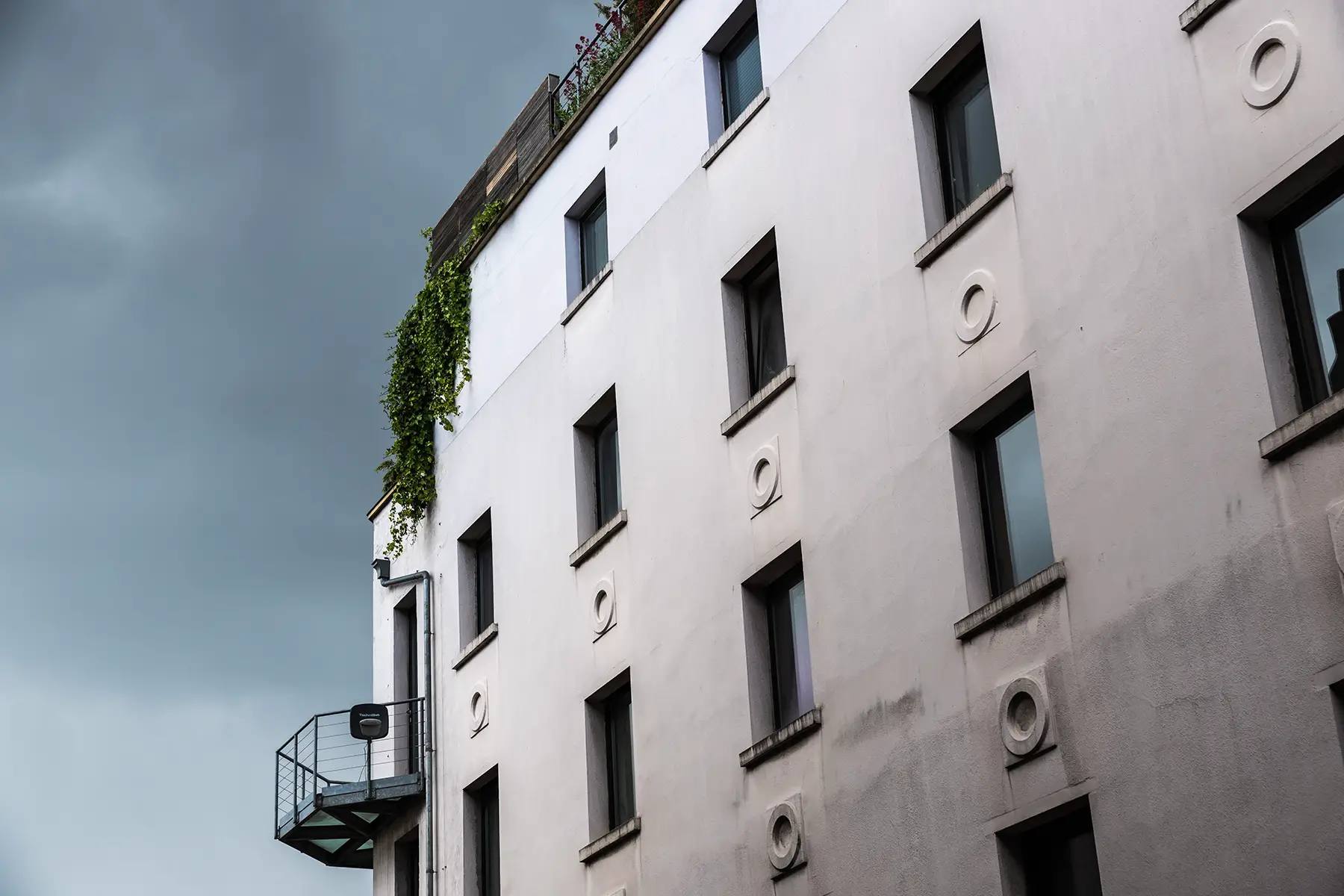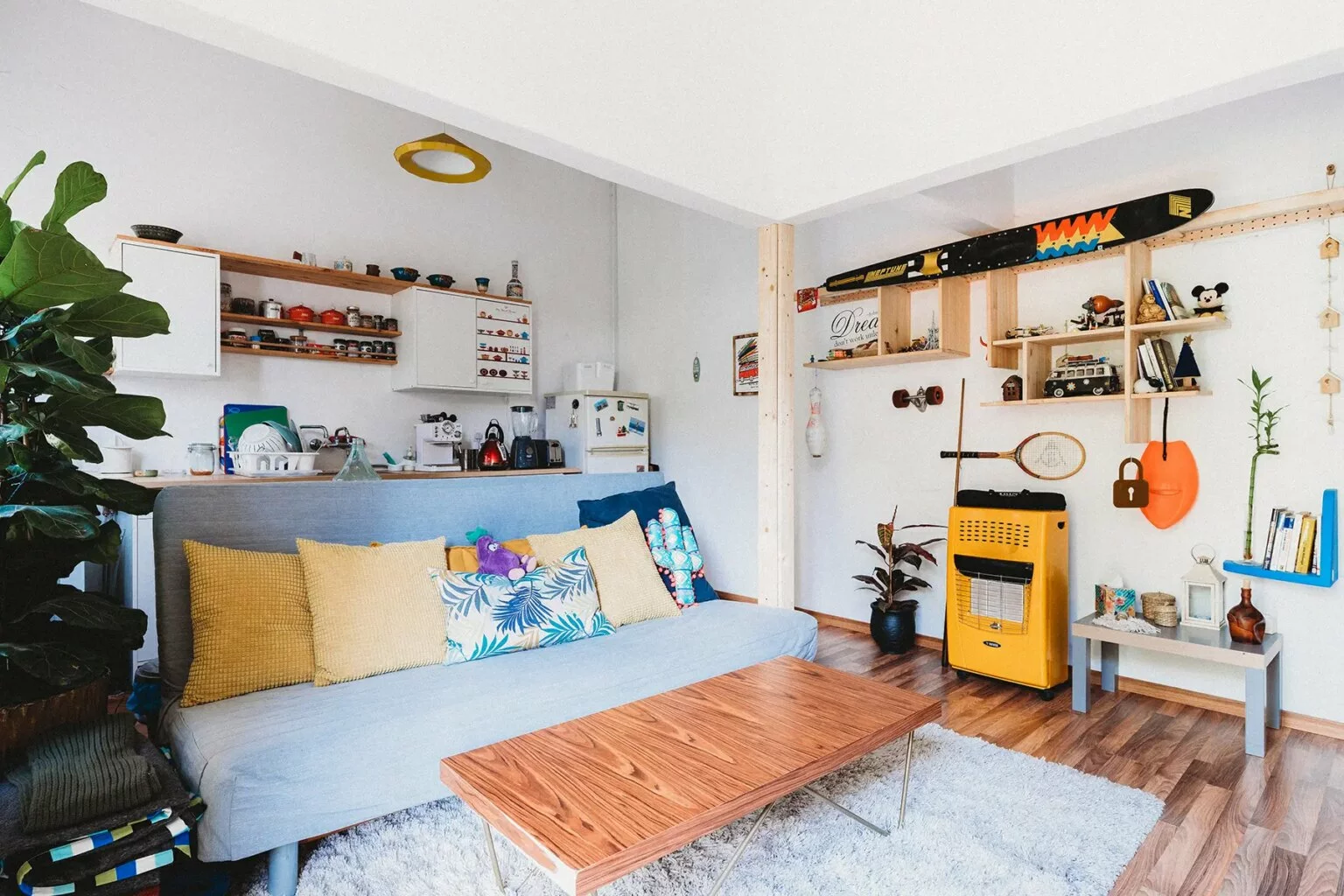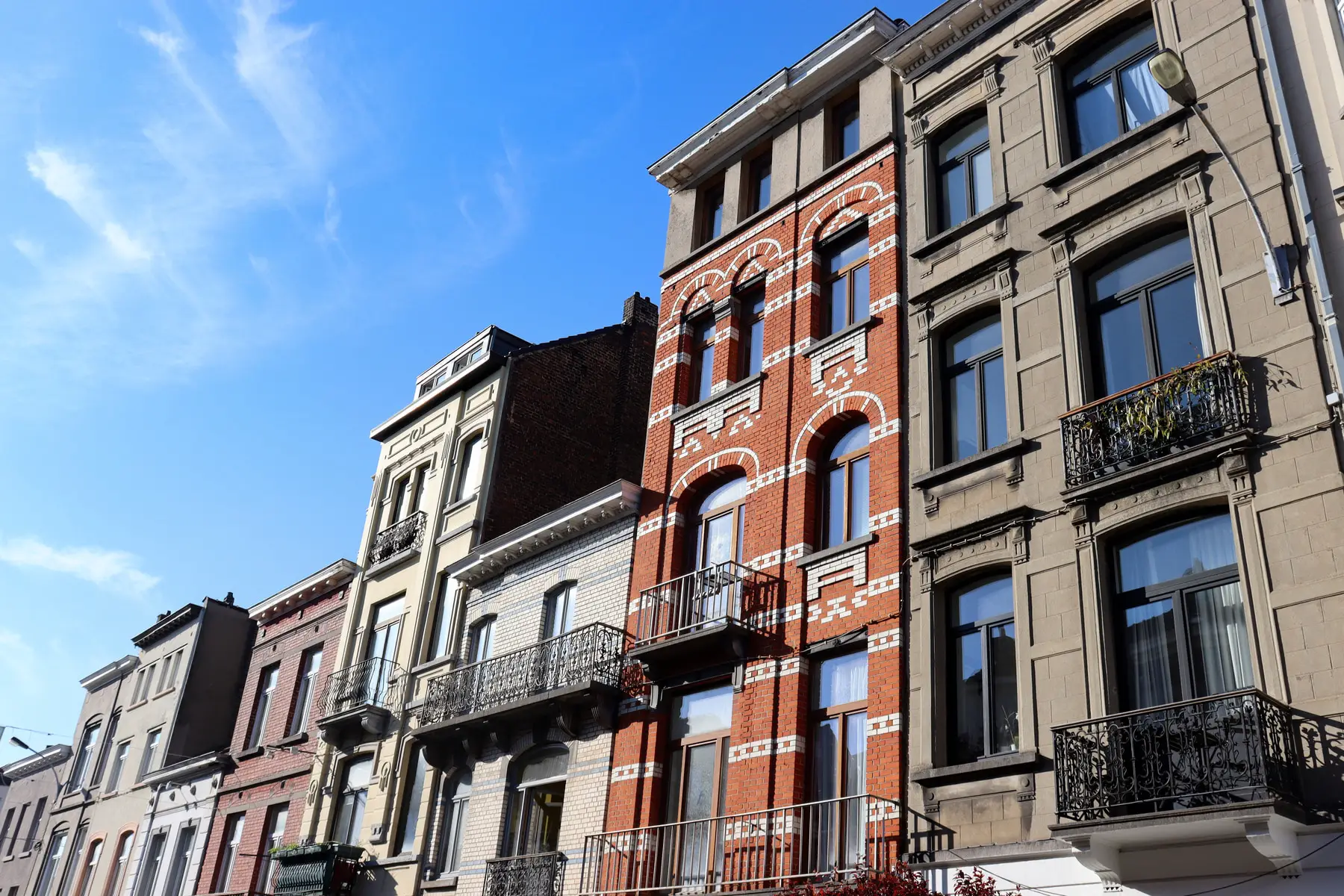Moving to Belgium is straightforward, even when looking for accommodation in its capital. Brussels is home to many European Commission departments and executive agencies, world-famous chocolate, and a small statue of a peeing boy. It boasts its own unique character in the heart of Europe.
Although property prices in the capital are the highest in the country, they’re still significantly cheaper than in London or Paris. This makes renting in Brussels an attractive place to settle for young professionals and entrepreneurs.
Learn all there is to know about renting in the Belgian capital, including:
BBF Apartments
Looking for temporary accommodation in Brussels? Try BBF Apartments. With almost 30 years of experience, their team of property experts offers flexible solutions to the city's expat community. Whether you need a city center studio or family-friendly flat, BBF Apartments can find your next temporary home.
Overview of renting in Brussels
A small, compact city with an international vibe, good public transport, and several appealing neighborhoods, Brussels (Dutch: Brussel, French: Bruxelles) attracts many expats looking for a home to rent. With one-third of its residents (35.9%) being of foreign origin, it has the highest proportion of migrants in Belgium.
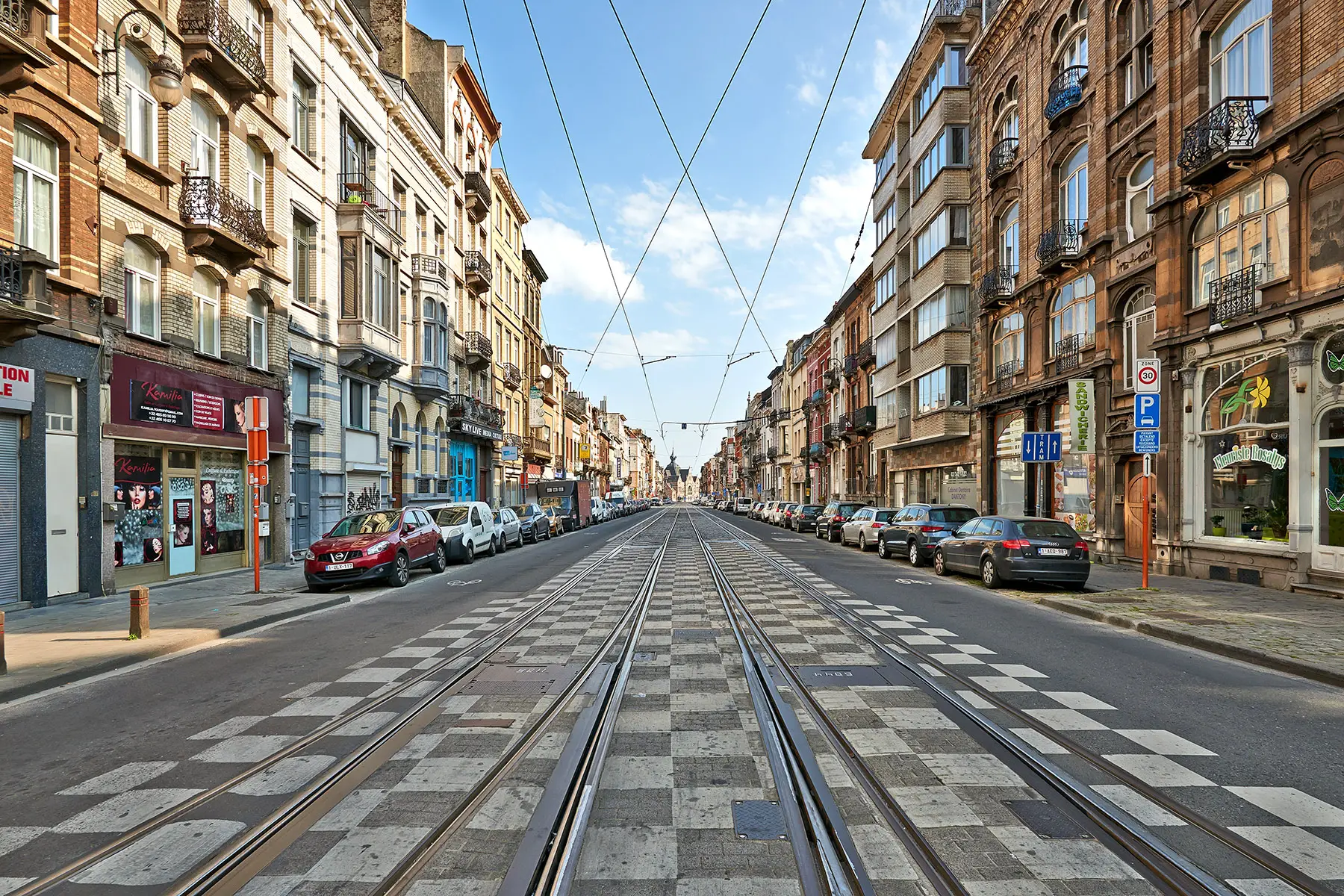
Many of the young professionals in Brussels live in stately apartments in the city center. However, other options are also available, including townhouses and short-term serviced rentals on the capital’s outskirts.
Although relatively cheap by European standards, rent in Brussels is more expensive than in other Belgian cities. You can expect to pay somewhere between €750 and €1,500/month, depending on the type of accommodation you want. Studio apartments are usually less than €1,000 a month, while city-center homes with three bedrooms or more are the most expensive and can set you back over €2,000 a month.
Around half of the population in Brussels rents their home. That is more than the national average (30%) because of the number of short-term rentals. Although it’s relatively easy to find short-stay accommodation, landlords in the capital still favor multi-year contracts. Lease agreements in Brussels are generally the same as elsewhere in the country.
Finding a rental in Brussels
When looking for a property to rent in Brussels, the two main options are:
- Using a real estate agent (Dutch: immokantoor, French: agence immobilière)
- Searching for rentals on online property portals
More and more people are looking for accommodation through online property platforms. The advantages of these are that they are easy to use, have a large number of listings, and usually don’t charge any direct fees. Popular sites in Brussels and across Belgium include:
- BBF Apartments (specialized in serviced apartments)
- Spotahome
- Morton Place (specialized in shared homes for professionals)
- Immoweb
That said, there are also many good estate agents who can not only help you find a home but also smooth over the endless red tape. English-speaking agents are common in Brussels, and many businesses have connections with a particular agency.
Estate agents dealing with renting in Brussels are usually paid by the landlord. Be wary of any who asks for a fee from the renter, particularly if they request a viewing fee. When you hire a search agent, however, you should expect to pay a commission, typically from €250 up to a month’s rent.
You can find a registered agent in the online directory of the Professional Institute of Real Estate Agents (BIV).
Apart from using websites and agents, you can also look for private ads in newspapers and on community boards. Some landlords still prefer to use these methods as they tend to be cheaper. The Bulletin (a platform for the international community in Belgium) includes property rental ads.
Unfurnished rentals in Brussels
The most common types of rentals in Brussels come unfurnished. Unfurnished means completely bare (i.e., without carpets, curtains, white goods, or even light fittings). You may be able to purchase some items from the existing tenant or negotiate with the landlord to pay extra if they provide certain household appliances.
What to expect with an unfurnished rental
Brussels is a densely populated city. This is reflected in the many apartment blocks and buildings that are split into apartments in the city center. However, you can find many old townhouses with gardens on the outskirts and in the suburbs.

Most apartments have either one or two bedrooms, although it is possible to find something larger. You can also find smaller studio apartments with an open plan living room that also functions as a bedroom and a kitchen.
Townhouses are typically between two to four beds. Property sizes can vary from less than 50 square meters for studio flats to over 100 square meters for houses.
In Belgium, a short-term rental contract is three years or less. However, when you opt for an unfurnished rental in Brussels, you will usually get a long-term contract that is valid for between three and nine years. Notice periods tend to be three months and both parties are subject to financial penalties of up to several months’ rent if they terminate the contract early. The deposit can be up to three months’ rent, and tenants are usually responsible for general internal repairs. Landlords are in charge of any bigger building defects.
When you leave an unfurnished rental in Brussels, you will be expected to return the property in the same state as it was when you moved in. The landlord can take costs for repairs and improvements out of your deposit.
Costs of unfurnished rentals
Costs depend on factors such as property type and size, as well as location. For example, city center rents are typically more expensive than the suburbs. You can expect to pay anything in the region of:
- €500–800/month for a studio apartment
- €700–1,000/month for a one-bedroom apartment
- €1,000–1,800/month for a two-bedroom or three-bedroom apartment
- €1,500–2,000/month for a three-bedroom house
The government’s statistics website StatBel has a rent calculator where you can work out how much you should be paying for your accommodation.
In addition to the monthly rent, tenants usually have to pay utilities, telecommunications bills, and any local taxes separately. At present, tenant home insurance is not compulsory, but you might want to take to out a policy to cover your belongings, especially if you have paid a lot of money to furnish the property. You can purchase a policy from companies like Flora.
Belgian landlords are permitted to increase the rent on long-term rental contracts every three years, in line with general price increases.
Furnished and serviced apartments in Brussels
Furnished apartments usually come with a range of additional goods. These are more commonly used for short-term renting and tend to cater to professionals who are in Brussels for shorter periods (e.g., temporary workers).
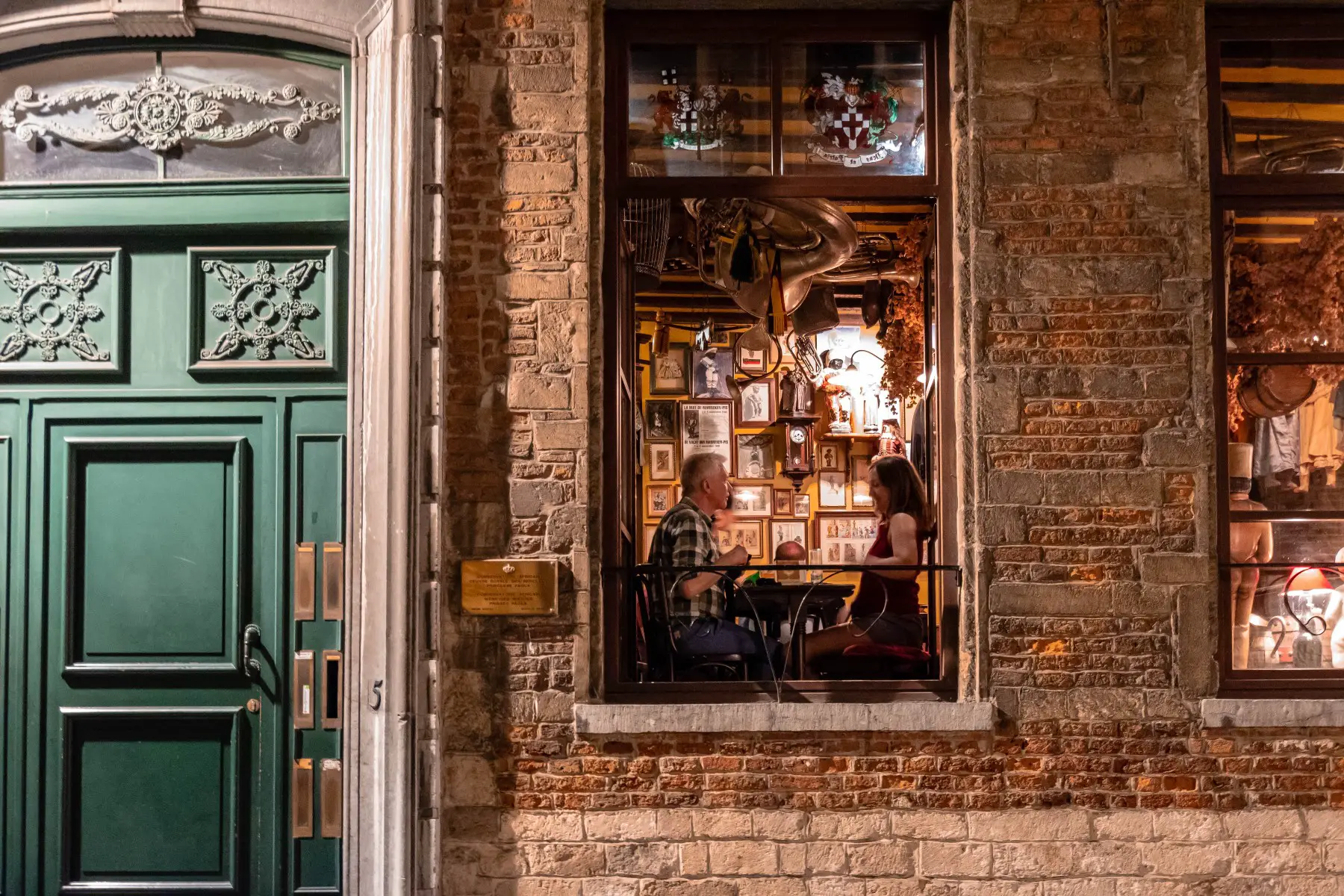
There are various types of furnished and serviced apartments, including:
- Résidence hôtelière (French) or aparthotel (Dutch) – an apartment with hotel service
- Espaces communs (French) or gemeenschapshuizen (Dutch) – shared-living communities
- Appartement privé (French) or privé appartement (Dutch) – a standard apartment you don’t have to share
What to expect with a furnished or serviced apartment
When you rent a furnished or serviced apartment in Brussels, you will pay for the rent, plus additional services, such as wifi, regular cleaning, and repairs.
Tenants of serviced apartments generally pay an overall fee that includes utilities and local taxes. Sometimes this also covers a certain level of insurance. Contracts are typically short-term (e.g., one, three, or six months), but some landlords provide longer contracts of up to three years.
Furnished apartments offer greater convenience for busy professionals. Landlords are usually responsible for repairs. However, they are more expensive (as you would expect) and often have stricter terms and conditions in the contract (e.g., no pets or smoking inside the premises).
Rules regarding deposits and landlord or tenant rights are similar to standard tenancy agreements. Short-term contracts don’t allow early termination. When you rent a serviced apartment for longer, the agreement may include a notice period (usually three months) if you want to leave early.
You can find serviced rental apartments in Brussels on websites such as:
Cost of furnished and serviced apartments
Furnished and serviced apartments are more expensive than unfurnished ones due to the extra facilities, services, and inclusion of bills. However, they tend to involve lower upfront payments as you only have to pay one month’s rent as a deposit, along with your first rental payment. In addition to this, there is normally a one-off admin fee.
Rough estimates of costs of furnished and serviced apartments in Brussels are:
- €800–1,200/month for a studio apartment
- €900–1,500/ month for a one-bedroom apartment
- €2,000–2,800/month for a three-bedroom apartment
Although fees generally include insurance coverage for furnishings, this rarely extends to your own personal belongings. If you’re taking any valuable items with you, you might want to look into a contents insurance policy.
Other types of rental in Brussels
Homestays
Homestays have become more popular in recent years, thanks to the ease with which people can rent out space within their own homes. As the name suggests, it’s a form of renting where you move into someone’s home for an agreed period of time. This is typically short-term and can be anything from a matter of days to several months, depending on the agreement between the renter and the homeowner.
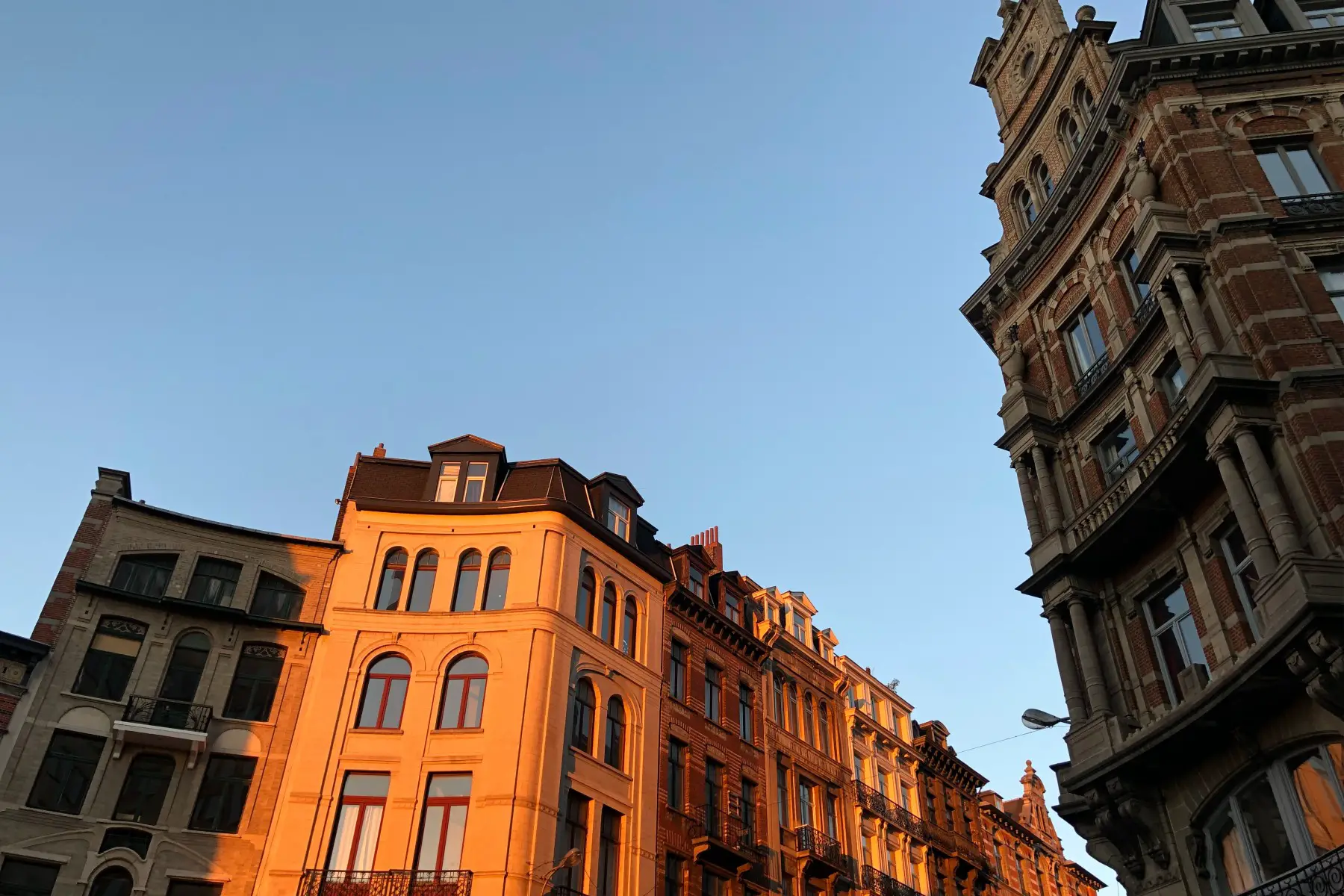
With a homestay, you can rent a room within someone’s home as a lodger or rent the entire property. These are usually less formal arrangements than finding a property through an agent or online portal. However, some who rent their homes may choose to use a basic tenancy agreement.
Similar to serviced apartments, accommodation comes furnished and your rent will be all-inclusive. For short stays lasting only a few days or weeks, tenants usually have to pay for the duration upfront. Longer stays usually take the form of a standard short-term contract (one month’s rent plus one month’s deposit). Although both parties are bound by the terms and conditions of the homestay platform they are using, tenants are usually liable for any damages.
You can search for homestays in Brussels on websites, such as:
Flatshares
Sharing a flat is a great option if you want to save money and don’t mind sharing a home with others. It’s also another convenient way of renting short-term, as you will typically have to sign either a short-term contract or move in on a rolling agreement. A rolling agreement is a contract without a fixed term but parties have to give a minimum notice period.
You can find shared accommodation to rent in Brussels on websites such as Spotahome and Morton Place, which specializes in co-living spaces for professionals in the capital.
Rental costs depend on the property size, type, and location and can vary between €400 and €1,000. Sometimes, bills are included and deposits are typically around one month’s rent. It’s a good idea to ask to see a copy of the deposit protection scheme certificate before paying out.
Student rentals
As Belgium’s capital, Brussels is home to many international students attending some of the country’s top universities. Student accommodation options include university dorms, where students usually have their own bedrooms and a shared bathroom. Dorms are arranged through the university or college, so you can contact their housing department for more information.

The alternative is renting a private apartment or a room in a student apartment (Dutch: kot, French: thurne), or staying with a family in an arrangement similar to a homestay. Websites with information on available student rentals in Brussels include:
Rooms in a shared apartment start at around €400 (although university dorms might be cheaper), while one-bedroom apartments start from €600–700.
Social housing in Brussels
Similar to other parts of Belgium, social housing in Brussels is available to those on low incomes and social security benefits who are registered as residents in the region. Space is limited, and waiting lists can be long, so it’s advisable to enroll with the local social housing association (Dutch: De Brusselse Gewestelijke Huisvestingsmaatschappij – BGHM, French: La Société du logement de la Région bruxelloise – SLRB) as soon as possible. You need to be aged 18 or over, meet income requirements, and be a resident of the Brussels-Capital region. The SLRB/BGHM oversees 16 social housing providers that provide across the 19 municipalities.
There are three other providers of low-cost housing to rent in Brussels, including:
- Social Real Estate Agencies (Dutch: Sociale Verhuurkantoren – SVK, French: Agences Immobilières Sociales – AIS) provide private sector rentals for those on low incomes. Their criteria are largely the same as those of general social housing.
- Housing Fund (Dutch: Woningfonds, French: Fonds du Logement) manages a stock of low-cost rentals for the poorest individuals and families in Brussels struggling with living costs
- Local communes sometimes directly manage and provide communal housing at a reduced rent to low-income households
Tenant rights in Brussels
Tenancy agreements in the capital are generally the same as elsewhere in Belgium. The majority of contracts are long-term, for at least three years, and follow the country’s 3-6-9 rule. This means that the contract is drawn up for nine years but is subject to review – and a possible rent increase – every three years.
Notice periods for tenants are typically between one to three months for short-stay rentals and three months on long-term contracts.
Contracts tend to favor the tenants in terms of offering them high security. However, tenants are responsible for repairs, improvements, and general upkeep. Landlords need to give tenants at least six months’ notice if they want the tenant to move out. More importantly, they need to have a valid reason, for example, they want to move into the property themselves.
After moving to Brussels
Other things to consider when you move to Brussels are:
- Adding your name to the foreigner’s register with your local municipality. You should do this within the first eight days. Your lease also needs to be registered with the Ministry of Finance by you or your landlord.
- Arranging your utilities and telecommunications contracts with Belgian providers if you move into an unfurnished accommodation
- Registering with a local doctor so that you can access healthcare in Belgium
Useful resources
- be.brussels – official website for the Brussels-Capital region
- Brussels.be – website for the City of Brussels
- Brussels Housing (Bruxelles Logement) – website with information about housing and renting in Brussels (in Dutch and French)



